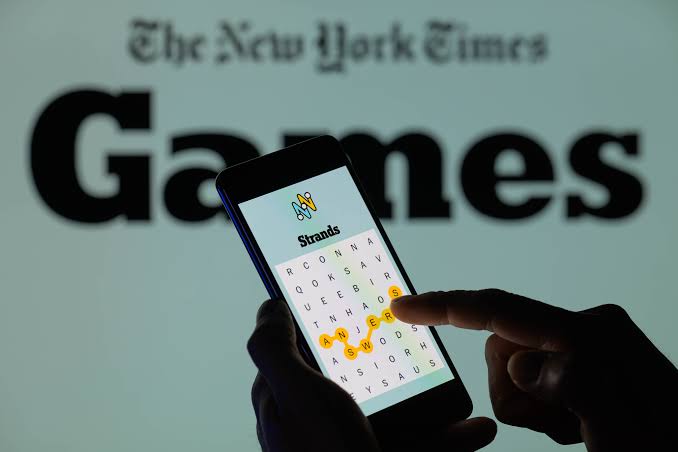Introduction
If you’ve ever tried your hand at The New York Times puzzles, you know they can be both thrilling and challenging. One clue that has been leaving solvers scratching their heads recently is “Strands hint NYT strands.” What does it mean? How do you decode it?
In this blog, we’ll break down this intriguing clue step by step. Whether you’re a crossword enthusiast or someone trying to solve the riddle for fun, this guide will simplify the process. Let’s dive into the world of puzzling with a fresh approach!
Contents
What Does “Strands Hint NYT Strands” Mean?
At first glance, this phrase might seem cryptic, but it’s not as complex as it appears. Here’s how to interpret it:
- “Strands” often refers to threads, pieces, or even hair-like structures.
- “Hint” suggests you’re being given a clue or subtle direction.
- “NYT” refers to The New York Times, known for its tricky yet clever puzzles.
When put together, the clue hints at something fragmented or split into parts, which could metaphorically mean a puzzle or wordplay element involving “strands.”
How to Decode “Strands Hint NYT Strands”
Here are a few ways to tackle this clue:
1. Look for Word Associations
Strands can have multiple meanings. Think about:
- Hair strands: Could the answer be related to hair, like “locks” or “tresses”?
- Thread strands: Could it involve words like “fiber” or “string”?
- Stranded: Could it hint at being left alone, like “isolated” or “abandoned”?
2. Consider the Puzzle’s Theme
The NYT puzzles often have themes. If the puzzle revolves around a particular idea, such as nature, fashion, or travel, the word “strands” might tie into that theme.
3. Analyze Letter Patterns
If you’re solving a crossword, you’ll have some letters filled in from other clues. Use these to narrow down the possibilities.
4. Think Outside the Box
NYT puzzles are known for their playful wordplay. The clue might not be literal. For instance, “strands” could represent something abstract like “DNA strands” or “strands of a story.”
Why Are NYT Clues So Tricky?
The New York Times crossword is designed to challenge your mind and push your thinking. Here’s why some clues, like “Strands hint NYT strands,” are particularly tough:
- Double Meanings: Words often have more than one interpretation.
- Wordplay: The puzzles frequently use puns and clever tricks.
- Broad Contexts: A single clue could refer to science, art, history, or pop culture.
The key is to stay patient and think creatively.
Tips for Solving NYT Puzzles
If you’re struggling with clues like “Strands hint NYT strands,” here are some tips to make solving easier:
1. Start with What You Know
Fill in the easier clues first. This will give you letters to work with for harder ones.
2. Use Online Resources
While solving manually is satisfying, there’s no harm in looking up hints or related words if you’re truly stuck.
3. Think Synonymously
Always consider synonyms or related words. For example, if “strand” stumps you, think of “rope,” “cord,” or “line.”
4. Take Breaks
Sometimes stepping away and coming back later helps you see the clue with fresh eyes.
5. Practice Regularly
The more puzzles you solve, the better you get at understanding NYT’s unique style.
Conclusion
“Strands hint NYT strands” may seem like a baffling clue at first, but with the right approach, it’s just another clever challenge to overcome. Remember to consider different interpretations of the word “strands,” stay patient, and enjoy the process of solving. NYT puzzles are designed to make you think, and cracking them is incredibly rewarding.
Next time you encounter a tricky clue, you’ll be better equipped to decode it with confidence.
FAQs
1. What does “strands” mean in NYT puzzles?
It can mean threads, fibers, or even a situation of being stranded. The context of the puzzle is key.
2. Are NYT crossword puzzles hard?
They range in difficulty. Monday puzzles are usually the easiest, while Saturday puzzles are the hardest.
3. How can I get better at solving NYT puzzles?
Practice regularly, start with easier puzzles, and familiarize yourself with common wordplay techniques.
4. Can I find help for specific clues?
Yes, many online forums and tools can offer hints or explanations for tricky clues.
5. Is it okay to use a crossword solver?
Absolutely! Solvers are great for learning and improving your skills, especially if you’re a beginner.
Happy puzzling!



Your point of view caught my eye and was very interesting. Thanks. I have a question for you.
Thank you for your sharing. I am worried that I lack creative ideas. It is your article that makes me full of hope. Thank you. But, I have a question, can you help me?
Your point of view caught my eye and was very interesting. Thanks. I have a question for you.